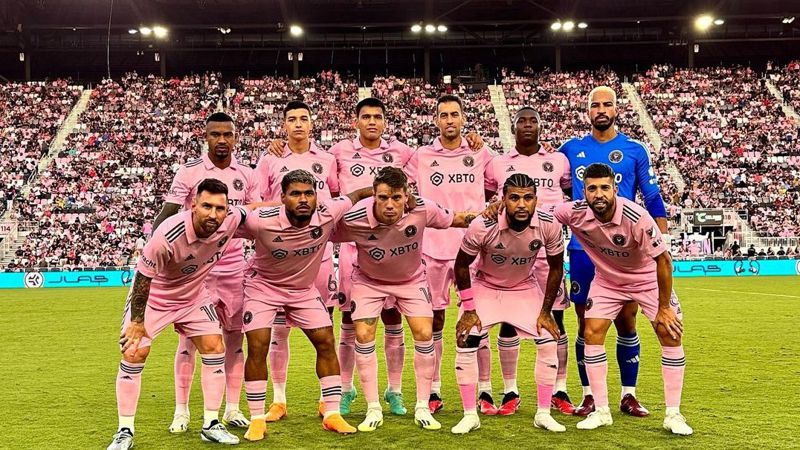The recent fixture between Inter Miami and Paris Saint-Germain, culminating in a comprehensive 4-0 victory for the French champions, offered more than just a scoreline. For observers familiar with Lionel Messi`s career trajectory and the teams he has represented, the performance felt uncomfortably familiar – and not in a positive, nostalgic way.
Inter Miami displayed characteristics that have previously been associated with versions of Barcelona and even PSG where the structure of the team seemed overly reliant on moments of individual genius rather than cohesive tactical execution, particularly without the ball. Against a well-drilled European side, even one potentially operating below full competitive intensity due to mid-season timing and environmental factors like heat, these structural deficiencies were laid bare.
The decision-making behind Inter Miami`s squad construction appears to prioritize reuniting Messi with former teammates, many now in their mid-to-late thirties, over assembling a squad with the necessary dynamism and defensive fortitude required at the highest levels of the sport. While the presence of footballing legends provides undeniable marketability and moments of skill, it also introduces significant challenges in terms of pressing, defensive transitions, and maintaining tactical shape for extended periods against athletic, organized opponents.
Against PSG, Inter Miami`s defensive vulnerabilities were stark. Goals conceded demonstrated a lack of basic defensive principles, such as securing the back post or organizing effectively from set pieces – an area the source article highlighted as a recurring issue for the team in MLS. These are fundamental elements of modern football that cannot be consistently overcome by individual attacking talent, however extraordinary.
While Messi retains the capacity for breathtaking passes and moments that remind the world of his unparalleled vision – as seen in the build-up to a disallowed Inter Miami chance – these flashes occur within a team framework that struggles to support him defensively or exploit his creativity with sufficient pace and movement from younger legs. It creates a dynamic where the team appears to be waiting for a moment of magic rather than systematically breaking down the opponent or preventing their attacks.
In essence, Inter Miami`s approach currently resembles a `greatest hits` album that omits the crucial rhythm section and defensive harmony required for a compelling live performance against a top band. The tactical setup and player profile risk making them a team that thrives when they can dominate possession and dictate tempo, but looks decidedly vulnerable when required to defend cohesively or react quickly to opposition movements.
The PSG match served as a potent, perhaps necessary, reality check. Nostalgia and individual brilliance can win certain battles, but competing against contemporary elite football requires a robust, well-balanced team structure. Until Inter Miami addresses these fundamental issues, relying on the echoes of past glories may prove a frustrating strategy when facing opponents built for the demands of the modern game.

